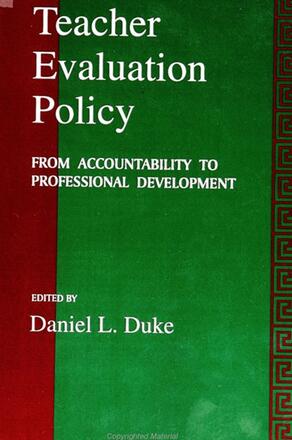
Teacher Evaluation Policy
From Accountability to Professional Development
Alternative formats available from:
Description
Since the beginning of the school reform movement in the early 1980's, various efforts have been made to improve teacher evaluation. Most of the initial efforts were designed to promote greater accountability. They were characterized by research-based performance standards, sophisticated classroom observation procedures, and extensive training. More recently, the focus of teacher evaluation has been expanded to include provisions for professional development. Supporters of this trend have argued that accountability-based evaluation diminishes in value as teachers gain experience and expertise.
Teacher Evaluation Policy presents case studies describing how new teacher evaluation policies have been created. The contributors go behind the scenes to examine the complex negotiations between politicians and special interest groups that accompany policy making. They identify the public and the private agendas guiding decision makers. What emerges is a vivid portrait of professionals and politicians grappling over the control of education. Accounts include the formulation of teacher evaluation policy in North Carolina, Louisiana, Connecticut, Washington State, and Great Britain.
Daniel L. Duke is Professor of Education in the Department of Educational Leadership and Policy Studies at the University of Virginia. He is the author of The School That Refused to Die: Continuity and Change at Thomas Jefferson High School and Teaching –The Imperiled Profession, both published by SUNY Press.
Reviews
"I often characterized teacher evaluation as the caboose on the school renewal train. So little attention is paid to the quality of the evaluation process even as so many resources are directed to transforming the nature of student assessment. This book not only highlights the efforts of cutting-edge state-policy efforts, but also makes a strong argument for creating a space for teacher evaluation in the systemic reform agenda.
"The delineation of the dual purposes of evaluation-accountability and improvement; the impact of activities at the local level on state policymaking; the influence of the varying constituencies; and the seeming lack of coherence with the broader changes in teaching and learning are all critically important themes that have not been brought out elsewhere. " — Denise A. Alston, National Education Association / National Center for Innovation